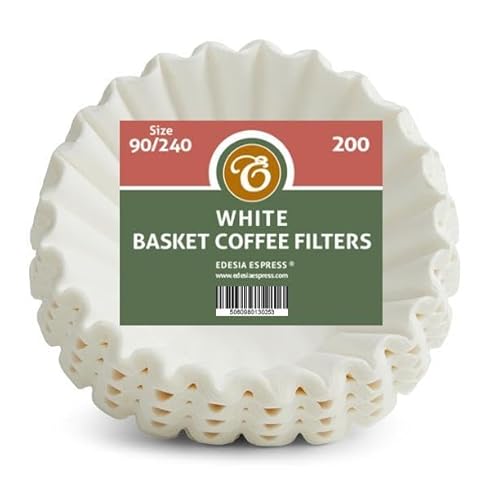Understanding Coffee Filters: Types, Materials, and Usage
Types of Coffee Filters
When we look at coffee filters, we discover they come in various types: paper, metal, and cloth. Paper filters can be found in bleached and unbleached versions, affecting the coffee’s taste due to the presence of chemicals in the bleached options. Metal filters, often made from stainless steel, allow oils through that enhance flavour but may require more cleaning. Cloth filters bridge the gap between paper and metal, offering some oil filtration while being reusable.
Materials Used in Coffee Filters
The material of the coffee filter plays a significant role in your brewing experience. Paper filters are usually preferred for their ease of use, but it’s important to choose the right type to avoid a papery taste. Metal filters permit the natural oils from coffee beans to pass through, yielding a richer cup. Cloth filters are both sustainable and effective for those looking to minimize waste while enjoying a well-balanced brew.
Usage Tips for Coffee Filters
To get the best from coffee filters, we recommend quickly rinsing paper filters with hot water before use. This not only removes any paper taste but also warms the brewer. For metal filters, it’s essential to clean them thoroughly after each use to prevent buildup, while cloth filters require regular washing to maintain their efficacy without affecting taste.
How to Choose the Right Coffee Filter for Your Brewing Method
Drip Coffee Makers
If you frequently use a drip coffee maker, paper filters usually provide the best balance of convenience and quality. For these machines, look for flat-bottom or cone-shaped filters designed to fit your model perfectly.
French Press
When brewing with a French press, a metal filter is a great choice, as it allows the oils and fine particles through, enriching the coffee’s body and flavour. If you prefer a cleaner cup, consider using a cloth filter in your French press.
Pour Over Devices
For pour-over coffee, paper filters are typically recommended to ensure clarity in the final beverage. Ideally, select a filter that matches your dripper’s design for optimal results.
The Impact of Coffee Filters on Flavor and Brew Quality
Influence on Coffee Taste
The choice of coffee filter can dramatically alter the flavour profile of your brew. For instance, paper filters prevent oils from passing through, often leading to a lighter, cleaner taste. Meanwhile, using a metal filter introduces these oils, lending a fuller and more robust flavour to your coffee.
Brew Quality Considerations
The quality of your brew is influenced by the filter’s ability to retain solids while allowing the water to flow through freely. A well-designed filter enhances extraction efficiency, meaning more desirable flavours from your coffee grounds are released into the brew.
Eco-Friendly Options: Reusable and Biodegradable Coffee Filters
Choosing Reusable Filters
If environmental impact is a concern, we recommend looking into reusable coffee filters. Metal and cloth options are both excellent choices, designed to last for years, significantly reducing waste compared to single-use filters.
Biodegradable Paper Filters
For those who prefer paper filters but want to be environmentally conscious, biodegradable paper filters are available. These filters decompose more efficiently than traditional paper, providing an eco-friendlier option without sacrificing convenience.
FAQs: Common Questions About Coffee Filters Answered
Can I use any type of coffee filter in my machine?
Not all coffee filters are universally compatible with all machines. It’s important to check what type your coffee maker requires to ensure proper brewing.
How often should I replace my reusable filter?
The lifespan of a reusable filter depends on its material and how well it is maintained. Generally, with proper cleaning, metal filters can last indefinitely while cloth filters may need replacement every few months.
Do I need to rinse my paper filters?
Yes, rinsing paper filters is a simple step that can enhance your coffee experience by removing any residual taste and ensuring a clean brew.






















